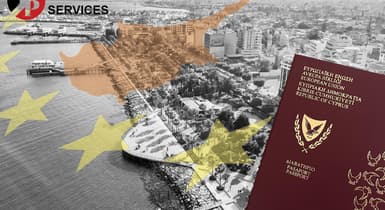National and International Sanctions Campaigns: How Can Ukrainian Businesses Navigate Potential Pitfalls

Since the beginning of the full-scale invasion of Ukraine, the pre-trial investigation authorities have significantly ramped up their efforts to carry out inspections into operations of companies that were connected with the Russian market in one way or another, and to conduct criminal investigations into related criminal offenses. Previously, one had open access to the names of the Russian company owners, yet the adoption of sanctions led to such companies hiding this information. This made it much more difficult to detect the connections between companies and the sanctioned beneficial owners, and thus the investigation procedures became complicated and time-consuming.
The European Union recently adopted its 14th package of sanctions against Russia for its continued illegal war against Ukraine, detailing the restrictive measures and determining their components.
The so-called 14th package of sanctions is the Council Regulation (EU) 2024/1745 dated 24.6.2024 amending the Regulation (EU) No.833/2014 concerning restrictive measures in view of Russia’s actions destabilising the situation in Ukraine. The package imposes stricter restrictions on 61 Russian and foreign companies directly or indirectly associated with Russia’s military complex. These include, among others, 33 companies incorporated in third countries: 19 in China/Hong Kong, 9 in Turkey, 2 in Kyrgyzstan, 1 in India, 1 in Kazakhstan, 1 in the United Arab Emirates. Subsidiaries in third countries were also targeted. Based on the package a further 47 Russian entities are subject to asset freezes. It is also worth underlining that the package introduces a new ban on EU and Member States financing of all Russian entities.
Analysis of the previous packages of sanctions suggests that apart from the Russian asset freeze measures and prohibition on transactions with crypto assets providers, the EU focuses on companies involved in logistics (including import and export of goods, construction goods, goods used in the aviation industry, chemical/biological equipment, goods linked to the military-industrial complex, complex generator devices, laptop computers, radio remote control devices, aircraft engines), as well as companies involved in the development and production of machinery and electronics, etc.
However, neither Ukrainian nor international businesses should rely solely on the sanctions list and restrictive measures. They must also analyse the structuring and relationships between their business and counterparties, as well as existing business agreements. Each new package of sanctions incorporates certain exemptions, which must be considered. They include, but are not limited to the following:
- Authorization to exempt from sanctions, which allows for the sale of property rights in a company owned by an individual included in the sanctions list.
- Regulatory conditions governing the transfer of property rights to certain types of securities, provided they are transferred under the custody of special designated organizations.
- Exemptions for EU companies owned by certain individuals or companies included in a sanctions list, which exemptions allow for the sale of such companies to third parties.
These exemptions show that even though the restrictive measures are clear, Russian corporations can find loopholes to evade sanctions.
In Ukraine, we are witnessing a significant increase in regulatory initiatives leading to substantial changes. One noteworthy initiative is the State Register of Sanctions, which contains information on companies and their beneficial owners. Most of this information is openly accessible and can be easily used for monitoring purposes. Currently, the Register holds data on 7,126 companies and 10,086 individuals under sanctions.
Despite multiple ways to monitor the sanctions lists, it is important to remember that economic coercion is as dangerous as the geopolitical coercion. Ukrainian businesses should exercise caution when engaging with companies in the ‘high-risk partnership zone’, namely ‘provider – recipient of services’, ‘counterparty’, ‘owner’ etc., that may have connections with Russia or Belarus. Even without direct knowledge of such connections, cooperation with them could still pose a significant internal security risks, including reputational harm, exposure to criminal and legal actions, asset freezes, or becoming targets of criminal investigations.

Companies displaying certain ‘red flags’ should be avoided, namely:
- Companies that do not participate in government programs or government tenders, so as not to draw the attention of government bodies to any changes in the corporate structure or staff of those companies after the beginning of the full-scale invasion.
- Companies that find it difficult to hide their active cooperation with Russian or Belarusian companies/individuals, especially those that happened in the past.
- Companies financed by Russian/Belarus asset, or their current income is used for financing in Russia/Belarus.
- Companies that reference to the currency equivalent of RUB or BYN in their business operations.
- Companies whose franchise is tied to Russian companies.
- Companies whose jurisdiction of origin and incorporation of the parent companies do not provide for beneficial ownership transparency (e.g. Commonwealth of the Bahamas, the Islands of Bermudas, the British Virgin Islands, the Cayman Islands, the Republic of Panama, the Republic of Seychelles, Belize).
- Companies that conduct most of their transactions and agreements in offshore zones, which, in view of the confidentiality principle, poses a big risk for their clients and counterparties.
Ukrainian companies, as well as in certain situations international companies, may end up in pitfall traps created by this situation. They might be unaware that even 1% of a counterparty’s shares are held by a Russian/Belarus beneficial owner, or the counterparty has business in Russia/Belarus, or that a third-country counterparty is a Russian/Belarus-owned subsidiary.
Offences revealed since the full-scale invasion indicate systematic attempts by Russian companies to take over Ukrainian businesses. Current criminal proceedings on those offences indicate the following facts: counterfeiting documents for official incorporation of companies or registration as individual entrepreneurs, collaboration activities, financing of terrorism, knowingly using forged documents, and more. The main industries targeted are agriculture, crypto assets, machinery, electronics, IT, construction, land management, real estate, commerce. Many of these industries are not yet publicly included in the EU sanctions lists.
To protect your company, thorough due diligence of counterparties is essential. Nowadays, this includes monitoring criminal proceedings involving them, ensuring sanctions compliance, as well as its extension to Ukrainian companies, and detailing the collaboration with other companies, specifying steps in forming contracts and other related processes.
One must admit that Ukrainian businesses face the risk of instability and disruption, and therefore it is crucial to adopt and adhere to measures that could help mitigate these risks.






